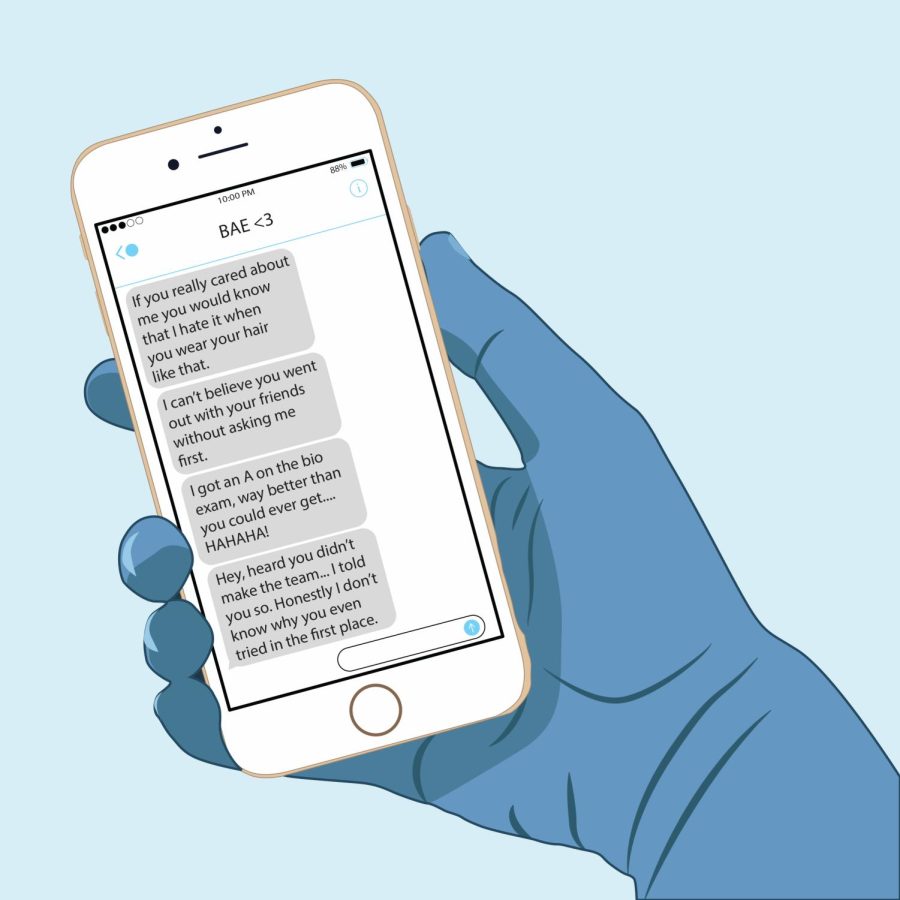Hidden effects of emotional abuse
October 22, 2017
Hannah was dating who she thought was the love of her life, but she was hurt. Despite him never physically hurting her, she was worn down.
“He flipped everything around on me all the time,” Hannah said. “He made me feel like I was a bad person.”
The junior nursing major suffered through this relationship for one year before she could not take any more of the lies, the letdowns and the constant cheating. This was not before the emotional abuse turned physical, ending with a broken nose and several bruises.
Jennifer O’Connell, the director of Kent State’s Sexual and Relationship Violence Support Services, said Hannah was experiencing an emotionally abusive relationship.
While there is no specific definition for this particular abuse, she said it often involves a cycle wherein the abuser will do anything to gain and maintain control over their significant other. It can have a lasting psychological effect, as well.
“When someone has that kind of control over you, it’s very difficult to get out of that relationship,” O’Connell said. “Someone who is abusive has done what they can to tear you down inside and emotionally.”
Unlike physical abuse, emotional abuse can often be hard to detect. Abusers will often be overly critical of their partner, using manipulation and gaslighting, the act of making their partner feel crazy for their emotions, as of way of gaining control. These actions may be disguised as an act of love from the abuser.
Emotionally abusive relationships usually follow the same path. After the honeymoon phase, where the couple spends time getting to know each other, communication begins to break down. When communication cracks, fighting begins to ensue. After the fighting, the abuser will offer apologies for a brief time. Eventually, apologies fade and the abuser will find ways to make every fight the victim’s fault.
As a result, victims typically develop psychological problems like anxiety, depression, low self-esteem and emotional detachment in abusive relationships, according to the Centers for Disease Control and Prevention.
Hannah recalled a time in her relationship where her boyfriend would not allow her to leave her house wearing flip-flops because they made her look “cheap.” She said this was not the only thing in her life he had control over: He decided what she wore, what friends she kept and even when she saw her family.
“He isolated me from pretty much everyone,” Hannah said. “Every time I tried to talk to one of my guy friends, he would freak out and assume I was cheating on him.”
Friends and family of the victim in an emotionally abusive relationship can be a huge help if they choose their words carefully. O’Connell said it is important to remember this is still a relationship. Saying things to the victim such as: “Why are you even with him? He’s a jerk!” could potentially make the isolation even worse.
It’s important to remember there is a connection between the victim and the abuser; there is a “love” between them that began before the abuse. Hannah said throughout her relationship, many fights started or ended by her saying he wasn’t the same as he used to be.
O’Connell reminds all victims, “It’s OK not to be OK.”
Emily McMahan is the student life reporter. Contact her at [email protected].

























